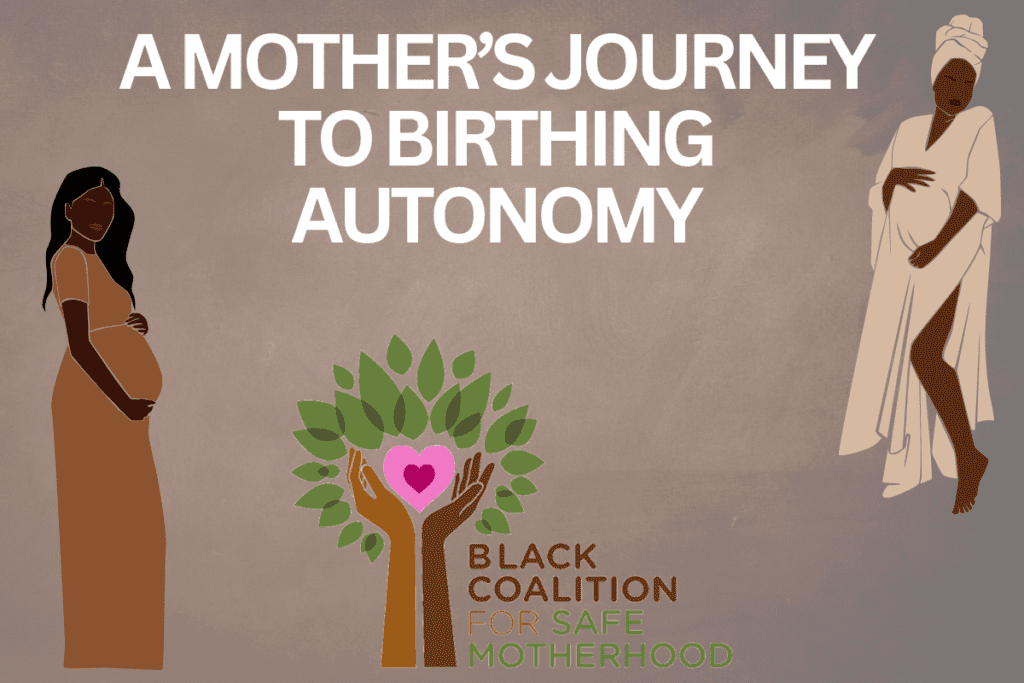My journey to an affirming birth experience was anything but a straight line. It began back in 2007, before concepts like supportive birth teams for mothers-to-be and birthing autonomy were widespread in the maternal healthcare world. I became pregnant with my first child when normal and healthy pregnancies were still routinely pathologized and medicalized.
Fifteen years ago, there was still a dearth of alternative birthing options for anyone wanting to labor and deliver outside of the conventional paradigm of laying on one’s back, legs up in stirrups. The only other option was having surgical birth. There certainly wasn’t any open public discourse around saving placentas for use in treating the symptoms of postpartum depression! The word doula was still an unfamiliar term to the majority of birthing folks, and midwifery was a dirty word in most hospitals.
At the time of my first pregnancy in Atlanta, Georgia, the only approved midwifery practice was nurse midwifery, and there was only one such practice in the metro Atlanta area. Unfortunately, that practice, and the corresponding hospital it worked out of, was over 20 miles away from where I lived, but I was determined and stubborn.
I was set on realizing a low-intervention birth. It just so happened that the hospital serviced by this nurse midwifery group also offered water birth. It was not a decision that took long for me to come to. The option of having a home birth was not open to me because of cost. I had to rely on using health insurance to pay for my maternal care. Thankfully, the midwifery practice in North Fulton accepted a health insurance plan I qualified for.
The path to an affirming birth experience was not an easy one. Long drives to prenatal appointments, switching insurance carriers, locating a birth education class and subsequently getting back and forth, and finally, finding and booking the services of an experienced and caring doula all posed challenges along the path to procuring an empowering and affirming birth experience.
I went on to have three more children. The birth of each taught me something different about motherhood and myself. Each time, I set to the task of diving into the tedious work of researching birthing options. Every two years or so, it became easier to find the maternal healthcare team that was both close and convenient to me and also supported my desired pregnancy journey and birth plan.
Today, more health insurance companies are waking up to the advantages of covering the cost of doulas, home births, and birthing centers, realizing it makes good economic sense to do so. In short, these supportive services often lower the amounts of high-cost medical interventions that drive routine hospital births to costs upwards of $20,000!
The opportunity to have a doula covered by insurance was unheard of 15 years ago. I was fortunate that even before this was the case, my state Medicaid plan covered the cost of my prenatal care at the hands of a nurse midwifery practice, and it covered the cost of the birthing tub I elected to use while I labored in the hospital.
There are a plethora of resources directing birthing people to a variety of low-intervention, low-medicalized birthing options. More and more hospitals nationwide are accommodating low-intervention birth plans. The healthcare world is beginning to catch up to the demands of birthing professionals, helpers, and birthing people. What has not fully caught up with the plethora of birthing options is awareness.
Maternal health education and advocacy are not being accessed by the general population of birthing people. Most still do not have a concept of the obstetric violence that occurs in hospitals, nor do they know both the short and long-term benefits of a low-intervention, de-medicalized birth. In addition, the importance of having a birth support team for healthy birth outcomes and postpartum experiences still goes largely unrecognized.
As doulas start becoming covered by health insurance, this gap in birthing empowerment will begin to close even more than it has from a decade ago. I am optimistic, thanks to the efforts of organizations like the Black Coalition for Safe Motherhood, that we will reclaim empowerment, autonomy, and fulfillment in the average birth experience. With the strides that have been made so far, I am confident that day is right around the corner.
-Rabiah Lewis, MPH

